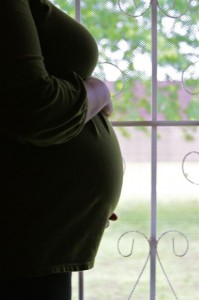The federal law that made it illegal for employers to discriminate against pregnant women – or those who had recently been or might become pregnant – has just turned 35. 
While it may be difficult for some in the younger generations to fathom a time when a woman’s reproductive status was ever an issue with employers, there are still many workplaces that apparently have yet to receive the memo.
Pregnancy discrimination attorneys in Costa Mesa know that pregnant workers still confront discrimination even now.
A recent example involves a case recently filed by a billing clerk at a trucking company in South Carolina. The woman became pregnant and at 7.5 months, went into premature labor. The doctor was able to stop her labor, which saved the life of the baby, but the woman had to be absent from work for several days. Her manager responded that she would not be allowed to return to work until after she had the child. The worker complained to administrators about being forced to go on leave. She was fired the day before she had her child.
Another case out of California became a hotly-contested one involving movie powerhouse Lucasfilm Ltd. The woman said she landed a job as assistant to the manager of “Star Wars” filmmaker George Lucas. However, she claims she never got a chance to start because once the manger found out she was pregnant, she was let go. The manager contended the woman had a poor attitude.
The case went to trial, with the woman receiving $114,000 in economic damages and $1.2 million in attorneys fees. However, the film company, which generated $4 billion in revenue just last year, appealed and the verdict was reversed. The two sides recently settled out of court.
The federal pregnancy anti-discrimination measure came in response to a 1976 ruling from the U.S. Supreme Court in General Electric Co. v. Gilbert. The high court ruled that pregnancy discrimination was not a form of sex discrimination. As such, it wasn’t a protected condition under Title VII. The same reasoning was applied by the court in a similar case two years earlier.
What this meant was that workplaces were essentially allowed to openly discriminate against pregnant women. They could refuse to hire them. Women could be forced to quit as they became pregnant. They could even change the conditions of employment for pregnant workers in a way that best suited the employer. And many employers enacted upon this freedom with impunity.
The only kind of protection there was came from the Cleveland Board of Education v. LaFleur in 1974. In that case, the supreme court ruled that public employers weren’t allowed to simply assume pregnant women were unable to work unless there was some type of proof regarding a person’s individual capacity.
Even now, with the protections granted under the PDA, many pregnant women continue to face problems at work. For example, there may be environmental toxins or hazards to which they may normally be exposed but could be especially harmful to the fetus. They may have certain physical limitations, such as restrictions on lifting. They may need accommodations allowing for less periods of time standing, fewer irregular shifts, more bathroom breaks and more opportunities to eat and drink. Most of these are easily available and painless to the employee – and yet often denied anyway.
In fact, rather than offer these accommodations, employers may take adverse actions against their pregnant workers.
If this scenario sounds familiar, we’re here to help.
Costa Mesa pregnancy discrimination employment lawsuits can be filed with the help of the Nassiri Law Group, practicing in Orange County, Riverside and Los Angeles. Call 949.375.4734.
Additional Resources:
The Pregnancy Discrimination Act Reaches Advanced Maternal Age, Oct. 29, 2013, By Joanna L. Grossman, Verdict, Justia
More Blog Entries:
FMLA Cited in Wrongful Termination Lawsuit, Aug. 3, 2013, Orange County Employment Lawyer Blog
 Orange County Employment Lawyers Blog
Orange County Employment Lawyers Blog

